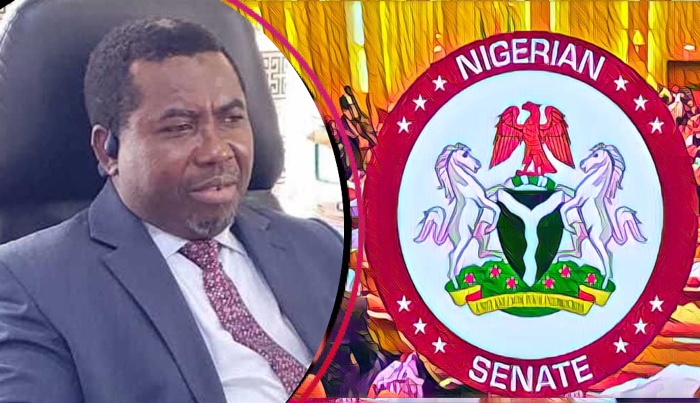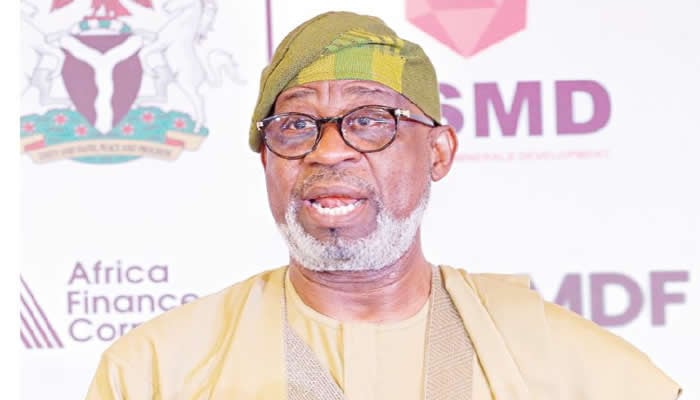The Senate has confirmed Professor Joash Amupitan as the new Chairman of the Independent National Electoral Commission.
The Red Chamber confirmed Amupitan after a voice vote conducted by Senate President Godswill Akpabio and after undergoing screening and answering questions posed by the lawmakers.
Amupitan had earlier arrived at the National Assembly complex earlier, exchanged pleasantries with Senators.
He was accompanied to the chamber by the Governor of Kogi State, Ahmed Ododo, and other dignitaries.
At about 12:50 p.m., the nominee was ushered into the Senate chamber by the Presidential Adviser on National Assembly Matters (Senate), Senator Abubakar Lado, and was already seated ahead of the commencement of the exercise.
Amupitan was allowed into the hallowed chamber after the Senate Leader, Senator Opeyemi Bamidele (APC, Ekiti Central), moved that Order 12 be set aside to allow visitors into the chamber, and he was seconded by the Senate Minority Leader, Senator Abba Moro (PDP, Benue South).
Senate President Godswill Akpabio welcomed Amupitan, his family members, and well-wishers to the Red Chamber, commending them for their presence.
Before introducing himself to the Senators for the question and answer session to take off, Akpabio disclosed to his colleagues that the nominee had been cleared by the office of the National Security Adviser after vetting.
According to Akpabio, the office of the Department of State Services had also cleared him.
The Senate President also said that the Office of the Inspector-General of Police, having done a fingerprint search on him, cleared him and said that he had no criminal records with the police.
The screening exercise commenced at about 12:55 p.m. following Akpabio’s opening remarks, during which he outlined the procedures to be followed by the lawmakers in considering the nominee’s credentials.
The screening session focused on Amupitan’s vision for credible elections, his plans for institutional reforms within INEC, and measures to deepen the use of technology in Nigeria’s electoral process.
Following his confirmation by the Senate, Amupitan will oversee preparations for upcoming off-cycle governorship elections and lay the groundwork for the 2027 general elections.
PUNCH Online earlier reported that President Bola Tinubu had nominated Amupitan, a Professor of Law from the University of Jos, to succeed Prof. Mahmood Yakubu.
The President’s letter conveying Amupitan’s nomination was read on the floor of the Senate by Akpabio during plenary on Tuesday.
A Senior Advocate of Nigeria and former Dean of the Faculty of Law at the University of Jos, Amupitan, is widely regarded for his expertise in constitutional and international law.
punch.ng
FOLLOW US ON:






































